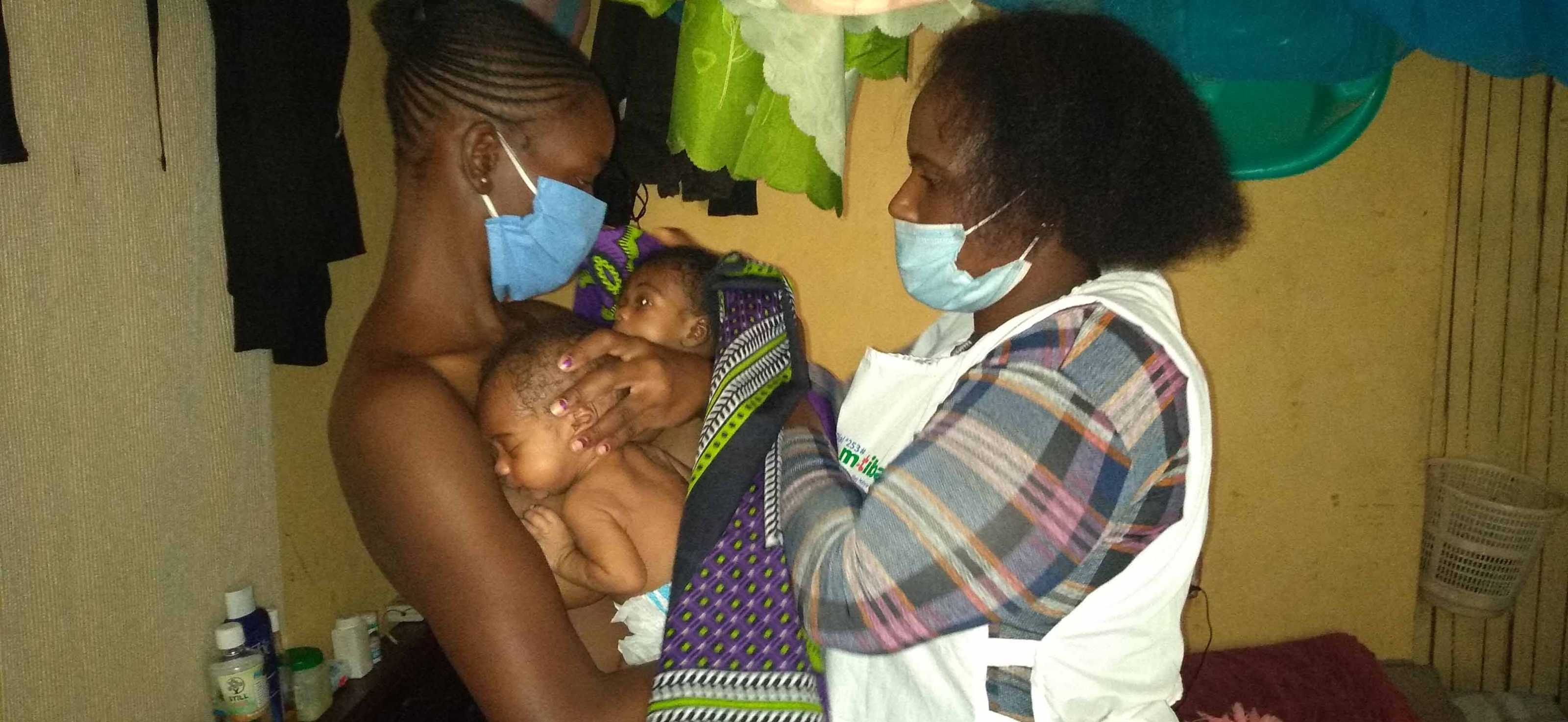Lavender Atienos felt helpless. She had just given birth to premature twins at her home in Nairobi County, Kenya. Each baby weighed just 1.6 kg, or 3.5 lbs. each.
Fearing for the lives of mother and babies, they were quickly rushed to a hospital 10 kilometers away. On the way, Lavender's tiny son Jesus Navas' heart kept stopping.
When they arrived, Lavender learned the babies could not be put on a ventilator and would be sent back home. Lavender was devastated. She was sure her son was going to die.
In Kenya, being born prematurely is often a death sentence
Prematurity is a leading cause of neonatal mortality in Kenya. Approximately 200,000 babies in Kenya are born too soon, and more than 15,000 die each year.
This heartbreaking number is due, in no small part, to a health workforce shortage in Nairobi, coupled with limited skills and lack of appropriate equipment and space. That’s one reason Lavender’s babies could not be treated when they arrived at the hospital. And at many clinics, even when the equipment is available, it is often inadequate and poorly maintained.
Put together, these factors make premature birth even more perilous for mothers and babies.
Kangaroo Mother Care offers a lifesaving option
Thankfully, a Corus World Health trained health worker, specializing in a method known as Kangaroo Mother Care, noticed the new mother in distress and intervened.
Kangaroo Mother Care (KMC) involves continuous skin-to-skin contact between mother and baby and has been shown to decrease mortality and morbidity in preterm and low birth weight infants by providing protection from infection, regulating temperature, breathing and brain activity, encouraging the mother, and promoting bonding, which increases the likelihood of survival.
A workable option in a stressed health care system
In Nairobi County, Corus World Health has worked to roll out this low cost, high impact intervention in four high-volume health facilities. Before this support, hospitals lacked resources to care for premature babies and would discharge infants weighing 800g – less than two pounds – or below, sending them home without the vital care they needed to survive.
To address this, Corus World Health set up KMC units and provided training and mentorship on the KMC technique to 176 health workers. To date, a total of 1,245 premature babies have been nursed with KMC through this program, and the neonatal mortality rate has dropped at the facilities using KMC.
A miracle solution for miracle babies
Thankfully, Lavender's story has a happy ending. We checked in on her three months after the birth of her twins, and they are doing much better.
"I put the babies close to me on my chest all the time," Lavender tells us. "My goal was to ensure that the babies added weight. They are now more than 2.8kgs [about 6 lbs.] each, and I am delighted. They are my miracle babies."

